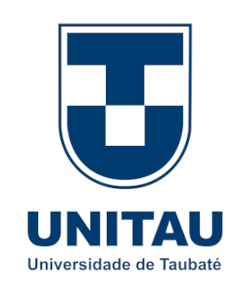BEYOND THE INDUSTRIAL MODEL: Education, Work, and the New Social Contract
DOI:
https://doi.org/10.69609/1516-2893.2025.v31.n2.a4044Keywords:
Lifelong Learning, Education, Digital era, Digital Inclusion, Public Policies, WorkAbstract
This article critically examines the transformations in the world of work driven by digitalization and their impacts on formal education. It argues that schools, still structured under the industrial paradigm, are unable to meet the demands of the New Digital Economy, which values creativity, adaptability, collaboration, and lifelong learning. The research adopts a theoretical-analytical approach based on an interdisciplinary literature review, drawing on economics, sociology, philosophy, and education, complemented by secondary data from international organizations. The study highlights the crisis of the industrial educational model and proposes the construction of a new educational and social ethos, centered on the fusion of work and learning (Learning & Working Fusion), digital inclusion, and critical and continuous education. The article concludes that only the integration of robust public policies, pedagogical innovation, and teacher training can align education, work, and citizenship with the demands of the digital society.
Downloads
Metrics
References
BANCO MUNDIAL. Brazil – Learning Poverty Brief. Washington, DC: World Bank Group, 2022. Disponível em: https://documents.worldbank.org/en/publication/documents-reports/documentdetail/099001507202239608/idu0c79a7ca400066041b60b7ef0ad4b020c8e5f. Acesso em: 31 ago. 2025.
BRAVERMAN, H. Trabalho e capital monopolista. Rio de Janeiro: Zahar, 1974.
BRYNJOLFSSON, E.; MCAFEE, A. The second machine age: work, progress, and prosperity in a time of brilliant technologies. New York: W. W. Norton & Company, 2014.
CETIC.BR. Pesquisa TIC Educação 2022 – Principais Resultados. São Paulo: NIC.br, 2022. Disponível em: https://www.nic.br/noticia/releases/empreendimento-conectividade-nas-escolas-brasileiras/. Acesso em: 31 ago. 2025.
COSTA, J. C. L., SANTOS, D. F. A., OLIVEIRA, M. R. DE, & MOURA, R. A. DE. (2025). Aprendizagem com solução de problemas reais para aprimoramento discente na injunção socioprofissional. CLCS, 18(2), https://doi.org/10.55905/revconv.18n.2-100
COULDRY, N.; MEJIAS, U. A. The costs of connection: how data colonize human life and appropriating it for capitalism. Stanford: Stanford University Press, 2019.
DRUCKER, P. F. Post-capitalist society. New York: HarperCollins, 1993. 232 p.
DRUCKER, P. F. The essential Drucker. New York: HarperCollins, 2001.
FORD, M. Rise of the robots: technology and the threat of a jobless future. New York: Basic Books, 2015.
FREEMAN, C.; PEREZ, C. Structural crises of adjustment: business cycles, technical change and economic theory. In: DOSI, G. et al. technical change and economic theory. London: Pinter Publishers, 1988.
FREIRE, P. Pedagogia do oprimido. Rio de Janeiro: Paz e Terra, 1970.
KORN FERRY. The $8.5 trillion talent shortage. Los Angeles: Korn Ferry Institute, 2018. Disponível em: https://www.kornferry.com/insights/this-week-in-leadership/talent-crunch-future-of-work. Acesso em: 31 ago. 2025.
KUHN, T. S. A estrutura das revoluções científicas. 4. ed. São Paulo: Perspectiva, 1996.
LANIER, J. Who owns the future? New York: Simon & Schuster, 2013.
LÉVY, P. Cibercultura. São Paulo: Editora 34, 1999.
LIPSEY, R. G.; CARLAW, K. I.; BEKAR, C. T. Economic transformations: general purpose technologies and long-term economic growth. Oxford: Oxford University Press, 2005.
MARX, K. A contribution to the critique of political economy. London: T. F. Unwin, 1859.
MCLUHAN, M. The Gutenberg galaxy: the making of typographic man. Toronto: University of Toronto Press, 1962.
MCLUHAN, M. The classical trivium: The place of Thomas Nashe in the learning of his time. Edited by W. Terrence Gordon. Corte Madera, CA: Gingko Press, 2006.
MCKINSEY & COMPANY. Preparing Brazil for the future of work: jobs, technology, and skills. São Paulo: McKinsey Global Institute, 2018. Disponível em: https://www.mckinsey.com/featured-insights/future-of-work/preparing-brazil-for-the-future-of-work-jobs-technology-and-skills. Acesso em: 31 ago. 2025.
MORIN, E. Os sete saberes necessários à educação do futuro. São Paulo: Cortez; UNESCO, 2000.
OECD. Future-ready adult learning in Latin America. Paris: OECD Publishing, 2021. Disponível em: https://www.oecd.org/industry/future-ready-adult-learning-in-Latin-America.pdf. Acesso em: 31 ago. 2025.
OLIVEIRA, M. R.; BENEVIDES, K. D. G.; RUFINO, L. J. G. C.; SANTOS, D. F. A.; BENEVIDES, M. P.; MOURA, R. A. Direito Digital e limitação no uso da IA: um ponto para reflexão. CLCS, [S. l.], v. 18, n. 7, p. e19679, 2025. DOI: 10.55905/revconv.18n.7-341. https://ojs.revistacontribuciones.com/ojs/index.php/clcs/article/view/19679
ONG, Walter J. Oralidade e escrita: a tecnologização da palavra. 2. ed. São Paulo: Loyola, 1998
PIKETTY, T. O capital no século XXI. Tradução de Mônica Baumgarten de Bolle. Rio de Janeiro: Intrínseca, 2014.
RICARDO, D. On the principles of political economy and taxation. 3. ed. London: John Murray, 1821.
SCHWAB, K. A quarta revolução industrial. São Paulo: Edipro, 2016.
SCOTT, J. C. Against the grain: a deep history of the earliest states. New Haven: Yale University Press, 2017.
SOLOW, Robert M. A contribution to the theory of economic growth. Quarterly Journal of Economics, v. 70, n. 1, 1956.
SRNICEK, N.; WILLIAMS, A. Inventing the future: postcapitalism and a world without work. London: Verso, 2015.
STIEFENHOFER, P. Artificial general intelligence and the end of human employment: the need to renegotiate the social contract. Newcastle: Newcastle University, Department of Economics, 2025.
SELWYN, Neil. Is technology good for education? Toronto, ON: John Wiley & Sons, 2016. 160 p. ISBN 978-0-7456-9646-1. Disponível em: https://journalhosting.ucalgary.ca/index.php/cjeap/article/view/42078/30057. Acesso em: [01 set. 2025].
TOFFLER, A. A terceira onda. Rio de Janeiro: Record, 1980.
WEF. World Economic Forum. The future of jobs in Latin America and the Caribbean: digital skills gap must close quickly to satisfy evolving employer demands. Genebra: WEF, 2025. Disponível em: https://www.weforum.org/stories/2025/04/the-future-of-jobs-in-latin-america-and-the-caribbean-digital-skills-gap-must-close-quickly-to-satisfy-evolving-employer-demands/. Acesso em: 31 ago. 2025.
Downloads
Published
How to Cite
Issue
Section
License
Copyright (c) 2025 Walkiria de Carvalho Pereira Tozi, Luciana Spolon, Luiz Antonio Tozi

This work is licensed under a Creative Commons Attribution-NonCommercial-NoDerivatives 4.0 International License.
A submissão de originais para este periódico implica na transferência, pelos autores, dos direitos de publicação impressa e digital. Os direitos autorais para os artigos publicados são do autor, com direitos do periódico sobre a primeira publicação. Os autores somente poderão utilizar os mesmos resultados em outras publicações indicando claramente este periódico como o meio da publicação original.




